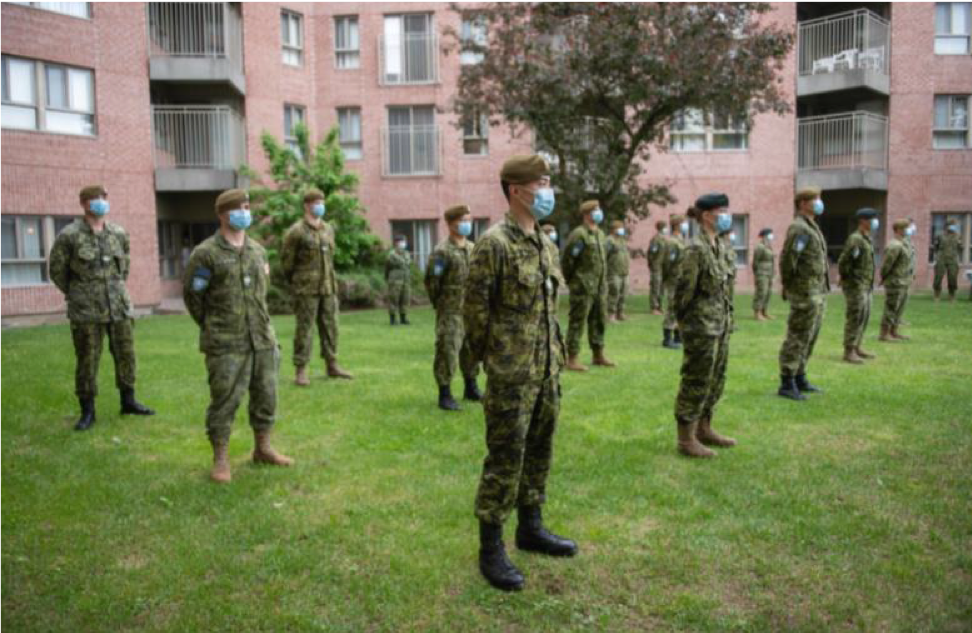In June 2020, amid the most severe global health crisis in a generation, the MINDS Program’s Collaborative Networks answered a call for papers to help the Department of National Defence and Canadian Armed Forces (DND/CAF) identify and understand the COVID-19 pandemic’s geopolitical consequences, lessons learned, and implications for the Defence Team. This report contains the Collaborative Network’s efforts to examine three core issues stemming from the COVID-19 pandemic. First, the pandemic’s impact on great power competition, economic prosperity, and political stability. Second, the lessons learned at home and abroad about anticipating, responding to, and managing public health crises; and the appropriate role for military capabilities in civilian-led response efforts. Lastly, the challenges and opportunities presented by the pandemic to the defence and other government portfolios, particularly in the areas of personnel, logistics and procurement, information management and technology (IM/IT), governance, planning, and operations.
Contributors
The MINDS Program currently funds six Collaborative Networks, each with a unique array of academics, experts, and specialists from across Canada. The contributing authors of this report include both established and emerging voices in the Canadian defence and security community. The work presented here is their own and does not represent the policy or opinions of the Government of Canada, Department of National Defence, or Canadian Armed Forces.
Key Takeaways
Geopolitics of COVID-19
- State Power Trip: The pandemic has increased the importance and power of states, as the only viable actors who can manage nation-wide response efforts, secure critical supply chains, and provide economic relief to their citizens.
- Disinformed: COVID-19-related information has become a high-value target for malicious actors seeking to sow confusion, mistrust, and politicize the pandemic, with alarming consequences for domestic and international politics.
- Great Power Competition: The pandemic is accelerating shifts and destabilizing the balance of great power competitors; as evident in declining international cooperation, the politicization of the pandemic, growing tension between the US and China, and increased opportunism by middle and rising powers.
- De-Globalization? Despite decades of rapid globalization, COVID-19 has stalled this expansion by causing borders to close, airplanes to ground, markets to contract, and international competition to rise.
- Alarming Spikes and Flattened Curves: Rising case numbers and a lack of leadership are weakening American soft power, leaving a vacuum to be filled by China, whose fumbled draconian response has managed to flatten the curve.
Lessons Learned
- From Remote Work to Remote Life: Remote work has become a ‘new normal’ for millions of people, with significant disruptions to work-life culture, information technology requirements, and the security of information.
- Technology, Security, and Surveillance: Technologies like artificial intelligence, contact tracing, and computer modelling, are enabling both the fight against COVID-19 and efforts to encroach on individual rights and freedoms.
- Readiness, Resilience, and Reliance: Security forces’ support was necessary to maintain national, regional, and local resilience, but this reliance has raised questions about how and whether to call on the ‘force of last resort’ in the future.
The Defence Team: People, Roles, and Relationships
- Choosing Battles: The COVID-19 pandemic has forced governments to make difficult trade-offs between their foreign policy interests, economic prosperity, and public health.
- Relying on Rangers: With the Canadian Rangers taking on new roles to address COVID-19 in Arctic regions, ways to ensure Indigenous inclusivity, autonomy, and self-sufficiency must be explored.




Comments are closed.